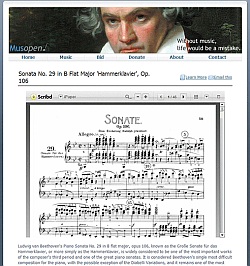Month: June 2013
I’m approaching the finish line in a year-long writing marathon. It’s an adventure bringing new acquaintances, advanced tools, and experienced advice to my writing table. Without question, the class’ greatest asset is my mentor. With a published work for almost every year of my life (she’s prolific, not ancient), and impeccable credentials as a founder of this genre, I cannot overestimate her contributions to my endeavor, and the publishing world as a whole.
I never considered a mentor. I’ve raised kids, stayed married, built businesses, gone back for a graduate degree. I had no idea what I was missing. But she has made THE difference in what I do now versus what I did before. I hope this blog encourages you to seek a mentor—through a journeyman class, your local university, a writer’s guild. Good mentors contribute in multiple ways, and mine’s blessed me in those explored below.

1. EXPERIENCE—She’s seen it all. Am I being too soft on my protagonist? Does the chapter needmore conflict? Am I telling instead of showing? On the writing side of things, she spots amateur mistakes immediately, then holds me accountable until they’re corrected. On the business side, she provides insight into personalities. Is this the right agent for me? What publisher can take my work into crossover? What conferences are the best fit at this point in the journey? She’s a sounding board par excellence.
2. PATIENCE—No doubt about it: publishing takes patience. She stepped into my process when one manuscript was complete, and another being written. Manuscripts don’t develop quickly, and there will be “dark nights of the soul” during the writing/publishing process. My mentor encourages me to keep my vision, but she could just as easily challenge me to adjust it. She provides a realistic expectation on the insanely slow process of working through editorial and publishing boards. And she’s a reality check about the time required to release a book. When I’m overwhelmed (it happens occasionally), she reminds me to breathe.
3. VISION—I am on the far edge of fiction written with a Christian worldview. I’m disinterested in writing most of what I see in CBA (Christian Booksellers Association), and read almost exclusively ABA (American Booksellers Association). My mentor and I understand this precarious position, having lived “in the world (but not of it)” long enough to realize the world is a changing place. Adapt or die. She’s a kindred spirit as a businesswoman with a vigorous faith, so a voice of encouragement when I’m wandering lost in the wilderness of tradition.
4. TOUCHSTONE—In a word, she’s a touchstone. She helps me assess what’s precious (both in terms of writing, and in terms of publishing). What has merit, and what needs to be evaluated more. She has an uncanny ability to challenge me where I need to be challenged. Hemingway would have called her “good and true.”
Do you have a mentor? If so, what does he or she bring to your work? And if you’re looking for a mentor, what qualities do you seek in one? I’m interested!
 I’m having a hard time concentrating today. It’s in the upper 60s, sunny, and the wild lupine and snow-in-summer (cerastium) fills our mountain air with a sweet scent. I’m supposed to write a blog about writing; instead, I want to grab a book from my to-read queue, snag a glass of iced tea, crank up the umbrella, and park outside my office to get sunshine on my pale legs. (I am an unattractive albino.)
I’m having a hard time concentrating today. It’s in the upper 60s, sunny, and the wild lupine and snow-in-summer (cerastium) fills our mountain air with a sweet scent. I’m supposed to write a blog about writing; instead, I want to grab a book from my to-read queue, snag a glass of iced tea, crank up the umbrella, and park outside my office to get sunshine on my pale legs. (I am an unattractive albino.)
My agent is at a major conference with my work. She’s an amazing woman—hard-working, excited about what I’m doing, industry-savvy. I’ve been generating copy—editing chapters, writing blogs, posting on facebook and twitter, creating marketing material, writing scripts for YouTube—at an alarming rate.
The good news is my facebook followers have jumped from 3,400 in March, to an astonishing 22,000 now. And my total following exceeds 26,000. My hard work has paid off. But my brain is foggy.
This afternoon, kind of like the manuscript and yeasty dough I wrote about last month, I may let my mind rest. Hemingway fished, and F. Scott Fitzgerald drank, so I should be able to read, right? Then I’ll catch up with my Goodreads.com reviews, and post photos on pinterest.com as well. (I’ve neglected these parts of my platform to focus on more tangible numbers.)
let my mind rest. Hemingway fished, and F. Scott Fitzgerald drank, so I should be able to read, right? Then I’ll catch up with my Goodreads.com reviews, and post photos on pinterest.com as well. (I’ve neglected these parts of my platform to focus on more tangible numbers.)
Excuse me, but summertime calls. How does it call you, and what are you doing to celebrate this delectable time of year?
(And don’t worry; I’ll be back to my normal, responsible self for Friday’s blog post.)
(This post continues the series.)
I’m an addict.
My agent is preparing for a big conference, where she’s going to hog-tie acquisitions editors about my work. (She’s that passionate. For the record, I believe passion about a client’s work is a critical element in identifying the right agent. Their contacts and track record are also important, but never forget the agent is your sales interface with publishers.)
 The lead manuscript in my series will be re-edited in July, but that editor is in Ireland now. So to prepare for conference, and to include my best with other materials we’ve discussed in this series, we sent a few chapters to another editor working in suspense. I asked her to kill my work; make it bleed. She obviously listened to my instructions. See the red? Oy vey.
The lead manuscript in my series will be re-edited in July, but that editor is in Ireland now. So to prepare for conference, and to include my best with other materials we’ve discussed in this series, we sent a few chapters to another editor working in suspense. I asked her to kill my work; make it bleed. She obviously listened to my instructions. See the red? Oy vey.
A manuscript is a lot like a child: it gestates, is born, then needs training. I adore my kids, and sometimes can’t see their flaws. I have difficulty finding issues, omissions, and logic leaps in my documents too, so an editor’s eyes help me pinpoint areas where I’d possibly lose a reader.
What was so special about this edit? She asked questions. How did my protagonist feel about a particular situation? How long would it take a camel and rider to get from point A to point B? What would her husband be doing in the barn while waiting for his son to pick up the phone? These are small things, but missing details that interested the agent—and probably eventually, reader—enough to make her inquire.
When I received the original edit a year ago, it looked a lot like the one in the photo. (Actually, it looked worse. The red column often ran off the page, dripping into my screen’s gray netherworld.) But the edit lacked the inquisitive nature obvious in this most-recent assault. Grammatical kinks are long gone, so this was a great time to probe more specific details, develop deeper psychological nuance in each character. Both edits were important. The second was transformational.
For the first time, I see my story’s beginning as I knew it could be told. I’m proud of it, and know I’m equipping the agent to represent me (and herself) well.
Some writers think an edit is unnecessary. Others view edits as little more than necessary evils. I’m beginning to think a superb editor might just be my best friend. As I said, I’m an addict.[subscribe2]
(This continues my series about useful tools while acquiring a literary agent, or approaching a publisher’s acquisitions editor.)
An author photo represents you everywhere: facebook, twitter, goodreads, pinterest, youtube, and in your marketing materials. Think long and hard about how to position yourself, and your brand, BEFORE the photo’s taken. Here’s my story.
I started with a very corporate author photo, and landed an impressive agent with it. It appeared all the online entities I mentioned above. As my brand grew and a publishing contract became more probable, I needed to update everything—my corporate brand, so to speak—before I could move to that next level. So I hired a mentor to help me fine-tune, and provide “healthy distance” as I used positioning and marketing skills from a previous life.
appeared all the online entities I mentioned above. As my brand grew and a publishing contract became more probable, I needed to update everything—my corporate brand, so to speak—before I could move to that next level. So I hired a mentor to help me fine-tune, and provide “healthy distance” as I used positioning and marketing skills from a previous life.
His first comment was about the photo. “You look like a mom.” No, I thought, I look competent. Approachable. Polished. Besides, I AM a mom.
“You’re writing suspense. You don’t look mysterious. Or evocative. Who’s going to buy a book by a suspense author who looks like a mom, even a nice mom?” He has a point, I thought. Bummer.
Now, mysterious and evocative (or romantic, if you write romance, or paranormal…well, you figure that one out) is a lot harder than you might assume. I had to chisel my brand (the suspense writer) from my self-image (the mom) before I could figure out how to present myself as Angelina Jolie mysterious or evocative. So I studied photos of authors I read. One resembled a pit bull. Another looked like an attorney. The third just looked old. Those photos weren’t helpful, but I began to discern differences in how they presented themselves to someone picking up their book at the local bookstore. (By the way, they’re all NYTimes bestsellers, so maybe photos don’t matter as much.)
 I agreed I needed an image more consistent with my writing, so spent several hundred dollars, and a few hours, interviewing professional photographers, choosing clothes, and finally doing a photo shoot. I actually took four outfits, and tried to figure out how to look like a suspense writer by getting comfortable with “the look” in front of my bathroom mirror. (Yes, the same mirror where I practiced my pitch. http://bit.ly/11kAsj5 )
I agreed I needed an image more consistent with my writing, so spent several hundred dollars, and a few hours, interviewing professional photographers, choosing clothes, and finally doing a photo shoot. I actually took four outfits, and tried to figure out how to look like a suspense writer by getting comfortable with “the look” in front of my bathroom mirror. (Yes, the same mirror where I practiced my pitch. http://bit.ly/11kAsj5 )
The first phase of my platform’s relaunch was the author photo. My facebook followers jumped from 3,400 to 6,700. When I added new background photos, they doubled again. Within a month of the website launch (May 15), my facebook followers number more than 20,000.
Did that surge result only from the author photo? No. My entire brand has evolved. But until I figured out how to present myself visually as an author writing suspense, I couldn’t work through the other facets of a new marketing platform. Having the photo taken forced me to evaluate myself as an author selling a product—one that I represent.
This old marketing dog knows if the marketer doesn’t understand the product, it’s not going to sell. Author, know thyself.
It’s okay to use your hands to eat a hot dog, or hamburger, or flag a cab. It’s important to use your hands, and intonation, while delivering the perfect pitch (discussed in the previous blog post).
I attended a seminar where I met twice with a vocal coach. He stressed pitching has an acting element. This approach seemed pretentious, and unnatural to me because I’m pretty straightforward. But if I’m going to publish, I have to make a compelling case for myself.
Once you have your pitch, here’s what you do.
 1. Find powerful words to emphasize with gestures. When I use the word, “foundation,” I draw a horizontal line with my hands, about chest level, mimicking a foundation of some kind. When I use “global,” I cup my hands in front of me, about six inches apart to represent a globe. From a practical standpoint, I worked out my gestures, highlighted those words on my computer with a blazing yellow stripe, and memorized my pitch using the highlights to remind me where to insert motion.
1. Find powerful words to emphasize with gestures. When I use the word, “foundation,” I draw a horizontal line with my hands, about chest level, mimicking a foundation of some kind. When I use “global,” I cup my hands in front of me, about six inches apart to represent a globe. From a practical standpoint, I worked out my gestures, highlighted those words on my computer with a blazing yellow stripe, and memorized my pitch using the highlights to remind me where to insert motion.
These gestures also reinforce your story, making it more natural, believable, and compelling. Limit yourself to four or five gestures in the two-minute pitch, and skip them entirely in the 10-second version. You don’t want to look like Don Quixote thrusting at windmills, but unless you’re a doppelganger for Grace Kelly or Paul Newman (or Gwyneth Paltrow or Hugh Jackman), give your audience something to see while they listen to you.
2. Treat your voice like a musical score. No. That does NOT mean you should sing your pitch. But remember that your voice can convey stress, or excitement, or be provocative. (I don’t write romance, so you’re on your own with that last one.)
remember that your voice can convey stress, or excitement, or be provocative. (I don’t write romance, so you’re on your own with that last one.)
Ask yourself questions. Where should I pause for emphasis? Where should I speak more quietly to evoke suspense? Where should I speak forcefully to make a point? Just as gestures should entice the listener into your pitch, your voice should support your story.
In summary, the more you practice your pitch, the more natural your voice becomes. The worst thing you can do while pitching isn’t to forget the entire thing, but to sound monotone, un-engaging, or flat. If you’re not enjoying telling the agent or editor about your manuscript, why should they believe readers will enjoy reading it?
If your product is strong, and what the publishing house seeks, your excitement is a powerful tool. And it’s contagious.







